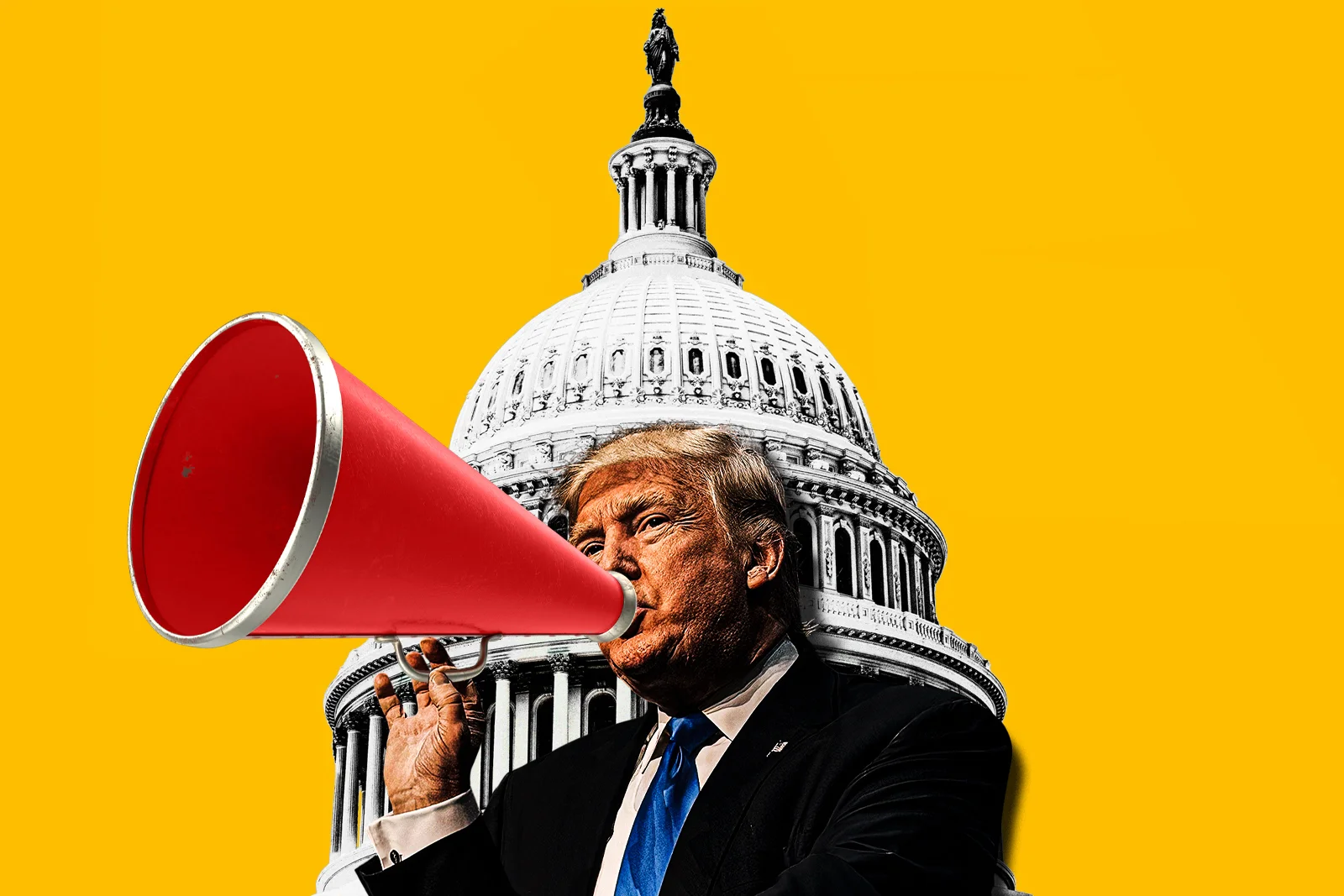
Politics
The Peril of Populism: Trump and the Erosion of American Democracy
On January 6, 2021, the United States witnessed an unprecedented attack on its democratic institutions. Spurred by Donald Trump’s baseless claims of a “stolen” election, his MAGA loyalists violently stormed the U.S. Capitol in a defiant rejection of Joseph Biden’s election as president. Before the chaos unfolded, Trump addressed his followers, urging them to “patriotically make [their] voices heard.”
In the years since, Trump has reframed this traumatic event with alarming falsehoods, now claiming the federal government orchestrated the attack to conceal a “fraudulent” election. He has even drawn a disturbing comparison between the imprisonment of Capitol rioters and the internment of Japanese Americans during World War II, going so far as to describe the event as “a day of love.”
Donald Trump embodies the growing danger that populism and illiberalism pose to democratic stability. His rhetoric weakens democratic institutions, exacerbates societal divisions, and dismisses the rule of law. These institutions are vital to democracy’s health, as they ensure equitable power distribution, protect civil liberties, and provide governance for all citizens. Yet populism threatens these safeguards, targeting the separation of church and state, a free press, and the integrity of electoral systems.
The American public’s susceptibility to Trump’s populist and illiberal rhetoric can be traced to five key trends: increased global competition, the decline of manufacturing, urbanization of opportunity, rising inequality, and the economic shock of the 2007 recession. These forces have created a sense of unpredictability and vulnerability in an ever-changing world. When governments fail to protect their citizens from these destabilizing factors, trust in democratic leadership erodes. Liberal democracy faltered in upholding its social contract, failing to shield citizens from globalization’s harsh effects and the long-term repercussions of economic upheaval.
Populism, as a political strategy, exploits these vulnerabilities. It relies on the charismatic appeal of a leader who leverages governmental power to gain support from large, often disorganized groups. Populists mobilize through five rhetorical elements: championing popular sovereignty, aligning with “common people,” opposing the elite, scapegoating marginalized groups, and evoking a shared national identity. Illiberalism, meanwhile, rejects liberal principles, favoring traditional hierarchies and cultural homogeneity while advocating for majoritarian and sovereignist solutions.
Populism’s incompatibility with democracy lies in its exclusive definition of citizenship and rejection of pluralism. Populists divide society into two groups: the virtuous “people” and the corrupt elite. This divisive tactic violates democracy’s foundational principle of inclusion, requiring an overly simplistic and counterfactual understanding of societal homogeneity. In truth, democracy thrives on diversity and plurality, creating a society in which free and equal citizens coexist within a framework of shared values and pluralistic dialogue.
Illiberalism, too, clashes with liberal democracy by promoting plebiscitary and majoritarian beliefs that undermine individual rights. Democracies limit majoritarianism to protect freedoms like speech, assembly, and press. Yet illiberalism embraces direct populist relationships and unchecked majoritarianism, bypassing representative structures designed to filter public opinion and curb the tyranny of the majority.
A hallmark of Trump’s illiberalism has been his assault on the separation of church and state. Promising to amplify the ideological influence of conservative Christians, Trump fostered a collapse of this foundational principle during his first term as president. From the overturning of Roe v. Wade to the growing backlash against transgender rights, critical race theory, and inclusive education, Trump has facilitated policies that intertwine religion and governance. In states like Alabama, Republican lawmakers have cited the Bible to justify legislation that limits voting rights, LGBTQ rights, and women’s autonomy. These actions erode protections for religious minorities, freedom of conscience, and the pluralistic ideals that underpin democratic governance.
Trump’s populist tactic of “othering” further destabilizes democracy by fostering an “us versus them” mentality. He paints Democrats as “enemies from within,” calling them “lunatics,” “evil,” and “dangerous.” This divisive rhetoric polarizes society, weakens social cohesion, and obstructs the democratic discourse needed for compromise and progress.
Trump’s disregard for the rule of law exemplifies illiberalism’s prioritization of majority rule over minority protections. His threats to prosecute political opponents once in power highlight a troubling willingness to wield power for personal gain, undermining the principles of accountability and justice. At the same time, his claims of immunity from prosecution signal a double standard that weakens faith in democratic institutions. The rule of law is essential to democracy, ensuring no individual is above accountability. Trump’s actions and rhetoric challenge this principle, threatening the stability of American governance.
While not every populist movement poses an existential threat, unregulated populism can undermine democratic principles. Political disputes over immigration, sovereignty, and trade can coexist with democracy if institutions remain robust. However, unchecked populism risks marginalizing minorities, eroding press freedom, centralizing power, and weakening democratic checks and balances.
The American experience under Trump underscores these dangers. His leadership has diminished the vitality of democratic institutions, deepened divisions among citizens, and shown a blatant disregard for the rule of law. These trends, if left unchecked, threaten to unravel the democratic principles of equality, freedom, and power fragmentation.
The lesson is clear: democracy requires vigilance, pluralism, and a steadfast commitment to its foundational institutions. Trump’s very existence serves as both a warning and a call to action to protect democracy from the corrosive effects of populism and illiberalism.
